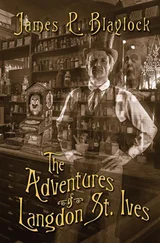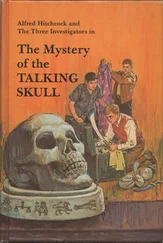James Blaylock - The Aylesford Skull
Здесь есть возможность читать онлайн «James Blaylock - The Aylesford Skull» весь текст электронной книги совершенно бесплатно (целиком полную версию без сокращений). В некоторых случаях можно слушать аудио, скачать через торрент в формате fb2 и присутствует краткое содержание. Жанр: sf_stimpank, на английском языке. Описание произведения, (предисловие) а так же отзывы посетителей доступны на портале библиотеки ЛибКат.
- Название:The Aylesford Skull
- Автор:
- Жанр:
- Год:неизвестен
- ISBN:нет данных
- Рейтинг книги:5 / 5. Голосов: 1
-
Избранное:Добавить в избранное
- Отзывы:
-
Ваша оценка:
- 100
- 1
- 2
- 3
- 4
- 5
The Aylesford Skull: краткое содержание, описание и аннотация
Предлагаем к чтению аннотацию, описание, краткое содержание или предисловие (зависит от того, что написал сам автор книги «The Aylesford Skull»). Если вы не нашли необходимую информацию о книге — напишите в комментариях, мы постараемся отыскать её.
The Aylesford Skull — читать онлайн бесплатно полную книгу (весь текст) целиком
Ниже представлен текст книги, разбитый по страницам. Система сохранения места последней прочитанной страницы, позволяет с удобством читать онлайн бесплатно книгу «The Aylesford Skull», без необходимости каждый раз заново искать на чём Вы остановились. Поставьте закладку, и сможете в любой момент перейти на страницу, на которой закончили чтение.
Интервал:
Закладка:
Who had done this – the man she had seen standing among the trees? Why hadn’t he merely stolen the fish, which could feed a moderately large family? He must have been remarkably curious if he had simply wanted to get a look at it. She stared at the fish for another moment, then hoisted the creel over her forearm and started off along the shore once again, looking into the wood with a heightened sense of suspicion. She unfastened the gaff from where it hung at her side and gripped the handle. Carrying the gaff in one hand and the creel in the other meant leaving the waders, but she would be less encumbered. The man would think twice about approaching her once he’d had a look at the business end of the gaff. Soon she was entirely out of sight around the swerve of the shore, and in fifteen minutes she was home again.
The sun shone through the intertwined branches of the wisteria alley, stippling the path. Away to her left the hop plants were shockingly green, climbing up their twining supports toward the heavens. She saw that Eddie and his sister Cleo were playing at tin soldiers on the broad veranda, Cleo laughing and bowling through Eddie’s troops with a siege engine towed by a mechanical elephant that was a marvel of moving gears, visible through a sort of Momus’s glass set into the elephant’s belly. The wind-up engine had been contrived for the children by William Keeble, the preternaturally brilliant London toymaker and inventor, who had long been Langdon’s friend.
Young Finn Conrad, the gardener’s apprentice, was cultivating the soil in the flowerbeds nearby, clearing fresh weeds from around a riot of pansies and foxgloves and marigolds. Finn had come into their lives a year ago, having endured a hard passage on the streets of London for a time before that, after tramping down the North Road from Edinburgh when he was eleven years old, taking six months on the journey. He had grown up in Duffy’s Circus and had manifold talents, of which they knew only a small part. He spoke less of what he had learned on the road and shifting for himself on the London streets and docks than about what he had learned in the circus, although no doubt both of those worldly schools were colorful in their course of study. He could ride a horse as if he were born to it, which he had been, and he was an astonishing tumbler and acrobat, with a fearlessness that made Alice pale on occasion, and which she very much hoped would not appeal to Eddie beyond a merely useful degree.
Finn stopped hoeing for a moment, apparently giving Eddie advice about troop movements, and then he saw Alice and waved heartily. She knew that Finn was a little bit in love with her, which was endearing, although it was only one of many endearing things about the boy, who was honest and forthright to a fault. The summer afternoon was so serene, and the scene so idyllic, that Alice felt abruptly foolish to be carrying the gaff, and she regretted having abandoned the waders, which ran the risk of being stolen by the lurker in the wood.
“Did you catch him?” Finn asked
“I did not,” Alice told him. “He stole my newly tied fly and nearly took my pole into the bargain. But I know where he lives now. He can’t hide from me.”
She greeted the children, who marveled at the pike in the creel, especially its enormous mouth and teeth. Eddie immediately saw its military potential as a counter to the elephant, but Alice closed the top of the creel, pointing out the fish’s potential as supper, which failed to impress either of the children.
“I’ve built a parachute, Mother, in order to launch soldiers from an airship like the one Father is to have.” Eddie showed her a spotted handkerchief, cut into an octagon, the corners tied with string, the bottom ends tied around the neck of a marine.
“It doesn’t work,” Cleo put in. “He’s killed seven soldiers trying.”
“I have not,” Eddie said. “One’s broken his leg, that’s all. I set it with a splint.”
He broke off, seeing that Cleo was again mobilizing the elephant, and Alice leaned her fishing rod against the corner of the veranda and carried the creel into the house, where she found her husband sitting on the big upholstered chair next to a sunny window in the drawing room, his long legs resting atop an ottoman, Hodge the cat stretched out asleep across his knees.
Alice had bought the chair and ottoman in London, courtesy of Aunt Agatha’s estate. The chair was one of the new coil-spring affairs with a vast amount of padding. Most of the furnishings in the house had belonged to her aunt, and were in varying degrees ancient, including the watercolors of wild flowers and fish that hung on the walls. The room, with its Turkey carpets and polished wood-paneling, was somewhat beyond the fashion, which delighted Alice, who found these reflections of the past both comforting and beautiful.
St. Ives looked up from a copy of Benson’s Air Vessels of the Royal Navy , just now aware that Alice had come in. He wore down-at-heel slippers and the disreputable waistcoat with embroidered orchids and flower petal buttons that he had apparently owned since he was a young man at the university, when he was something more of a Bohemian. It was much frayed and was rubbed through at the collar, but he generally put it on when he was in an expansive, cheerful mood. The carpet roundabout the chair was littered with drawings, books, and catalogues.
“One week!” he said to her happily.
“Until…?”
“Until the vessel is airworthy. Or so Keeble tells me.” He picked up a letter from the table next to the chair and waved it at her. “It came in today’s post. Keeble has laid out the particulars – the miniaturization, the motive power. It’s a very nearly fabulous craft, Alice, perhaps the first of its type – a rigid skeleton, do you see, built of bent bamboo, with the skin stretched around it so that it maintains its shape even when it’s idle. Hydrogen gas will fill the nose of the craft first, so that it’ll be very nearly vertical at launch, with the interior of the gondola remaining level due to its being hung on a pendulum. We’ll stow it in the barn. I’m devising a means by which to draw back a vast section of the roof in order to sail her straight up into the sky. Have I mentioned that?”
“Not above a dozen times,” she said. “I think it’s a grand idea. The family can flee the country at a moment’s notice when Scotland Yard finds us out. I’ll keep a bag packed and ready.”
St. Ives laughed out loud. He was happy enough with his pending airship to be easily amused. “What do you have in the creel?” he asked. “Supper or something to hang on the wall?”
“Supper, I believe. It’s been a baffling afternoon.”
He set Hodge onto the ground, hauled his legs off the footstool, picked up a scattering of papers from the floor, and set them atop the upholstery. Alice ascertained that the bottom of the creel was dry before settling it on the papers.
“Baffling in what sense?” he asked, opening the creel. “Outwitted by a fish, were you?”
“Yes, but I expected that. He’s a wise old fish.” She told him about the man in the wood, the crying out, the battle of the weir, and the strange business of someone having meddled with the pike.
The kitchen door opened, and St. Ives’s factotum, Hasbro, walked in carrying lemonade on a tray. He and St. Ives had been through so many adventures together that neither factotum nor manservant quite applied, although it had at one time. Hasbro kept up his old habits, though, which had come to define a small part of him. Alice took a glass gratefully. Fishing was thirsty work. St. Ives pushed aside a mechanical bat that sat on the table – an automaton, built by Lambert in Paris, which was so perfectly contrived that it looked stuffed. He set his glass down and then peered into the creel again.
Читать дальшеИнтервал:
Закладка:
Похожие книги на «The Aylesford Skull»
Представляем Вашему вниманию похожие книги на «The Aylesford Skull» списком для выбора. Мы отобрали схожую по названию и смыслу литературу в надежде предоставить читателям больше вариантов отыскать новые, интересные, ещё непрочитанные произведения.
Обсуждение, отзывы о книге «The Aylesford Skull» и просто собственные мнения читателей. Оставьте ваши комментарии, напишите, что Вы думаете о произведении, его смысле или главных героях. Укажите что конкретно понравилось, а что нет, и почему Вы так считаете.










